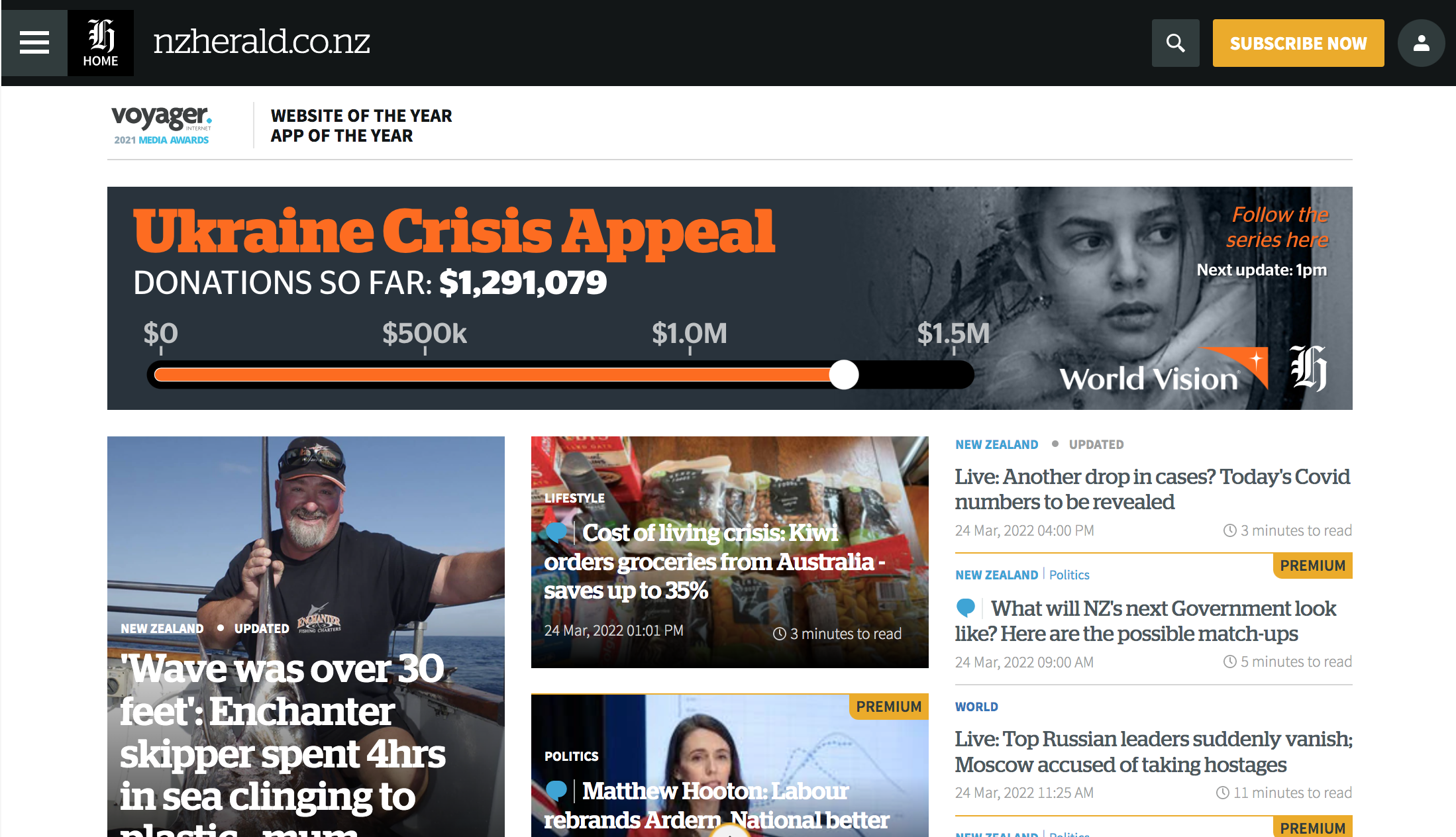
One of New Zealand’s largest news organisations is in talks to sign a multi-million-dollar licensing deal with Google.
New Zealand Media and Entertainment (NZME) said on Friday morning (local time) that it has signed a “letter of intent” with Google and suggested it may also agree a deal with Facebook owner Meta.
The talks mean that NZME has broken ranks with other New Zealand publishers that intended to collectively bargain cash-for-content deals with Google and Meta.
Under the potential Google agreement, NZME would supply content from its titles – which include the New Zealand Herald and Businessdesk – for News Showcase, an aggregation service, and “for other news products and projects”.
It is not clear how much Google would be paying the company. But NZME said that if the deal goes through, it would expect its 2022 Ebitda to be between NZ$67-72m (£35-38m) – up from NZ$66m in 2021. An NZ media source speculated that it would be worth roughly NZ$5m a year to NZME.
On Friday morning in New Zealand, NZME’s share price was up 9%.
Click here to subscribe to Press Gazette’s must-read newsletters, Future of Media and Future of Media US |
The company said it will now spend up to 90 days working out the final terms of the deal, which is expected to cover a period of at least five years.
NZME said it was also “currently in commercial discussions with Meta with regards to them supporting a number of digital transformation projects over the next year”.
The news appears to have come as a surprise to rival media organisations. As previously reported by Press Gazette, New Zealand’s News Publishers’ Association (NPA) had applied for the right to collectively negotiate deals with Google and Meta.
NZME said today that, as a result of signing a letter of intent with Google, it has notified the NPA that it will not be involved in collective bargaining talks unless its own deal falls through.
A senior source at a rival publisher said NZME’s announcement had come as a shock to the rest of the industry. They said NZ’s news media companies have been working towards negotiating collectively and described NZME’s breakaway as “snaky”.
“We wanted to avoid the Australian situation, where the largest companies were offered better deals on terms that independent publishers could never access. This looks like it gives NZME $5m to go shopping for our journalists before we agree a deal.”
The source added that, while large publishers will probably be offered deals as well, “smaller indie news organisations are likely to suffer”.
Publishers applied to New Zealand’s Commerce Commission for the collective bargaining rights in November.
They said they wanted the ability to strike licensing deals with Google and Meta and believed they could not fairly negotiate with the tech giants alone.
Publishers said that this was especially important because rival media companies in neighbouring Australia are benefiting from Canberra’s news media bargaining code. This forced Google and Meta to start paying for news content.
In February, Manatū Taonga, the Ministry for Culture and Heritage, wrote to the Commerce Commission in support of NPA’s application. Its submission also suggested that the government may consider Australia-style legislation in the future.
“Financial agreements for news media content are primarily a commercial matter,” it said. “News content has value best determined by the market. However, due to the lack of progress in commercial discussions, Manatū Taonga is considering options to support New Zealand media companies to reach commercial arrangements with digital platforms, should financial compensation not materialise through negotiations.
“The development of government regulation is time consuming and requires considerable public funding and resources. Developing effective regulatory solutions commonly takes years.”
Following the NZME announcement, Caroline Rainsford, Google New Zealand’s country director, said: “We are proud to support original, trusted, and quality journalism and are pleased to reach an agreement with NZME as a major New Zealand publishing partner. This partnership will support the future of journalism in New Zealand, including through projects that will contribute to the digital transformation of one of the country’s leading integrated media companies.”
Email pged@pressgazette.co.uk to point out mistakes, provide story tips or send in a letter for publication on our "Letters Page" blog
